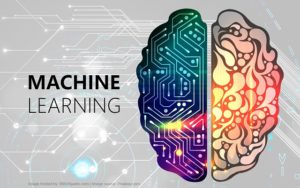
What was once only seen in movies is now reality – and it’s gaining acceptance across many industries and audiences.
More and more companies are adopting the machine learning technology for use in their products and services, understanding the significant value it adds in working with an audience that expects personalisation. There are some standout companies that are now making significant strides in how machine learning can be used, setting themselves well above others in their industry.
Keep your eye on these incredible companies to see how they incorporate this machine learning technology:
HubSpot
The company has long been an early adopter of emerging technologies and recently announced the acquisition of machine learning firm Kemvi. HubSpot will be using Kemvi’s technology in integrating Kemvi’s DeepGraph machine learning and natural language processing tech in its internal content management system. This, will allow HubSpot to better identify “trigger events”, more effectively pitch prospective clients and serve existing customers, according to Bradford Coffey – Chief Strategy Officer, HubSpot.
Iris AI
This science research company created an AI-powered science assistant that functions like a search tool, helping researchers track down relevant journal papers without having to know the right keywords for their search. The future goal of the company is that an artificially intelligent baby grows up to become a scientist capable of forming and even testing hypotheses, based on everything it’s going to learn in its science research assistant ‘first job’ role.
Descartes Labs
The company uses machine learning to help organisations better understand and forecast crop yields across the world to better prepare the amount of food needed to avoid shortages. The machine learning is applied to satellite imagery data to provide those insights. It is hoped that this technology can help numerous industries like agribusiness, insurance and finance, as well as government agencies.
TrademarkVision
TrademarkVision uses machine learning technology in its image-recognition tools to determine if a new company logo is acceptable or if it violates any existing trademarks. What used to be a cumbersome, time-consuming, and not always accurate process, is now fast, efficient, and so accurate that the European Union’s trademark offices now use this system.
Flint
Flint incorporates machine learning in its invoicing and credit card processing platform to facilitate some of the many time-consuming tasks that go into handling these aspects of your business. It includes automating tasks like payment reminders, acknowledgements, coupon offers, discounts and more. Its payment security features are also adding machine learning functionality to help businesses stay on top of any suspicious activity and uncover any questionable patterns in transactions.
Baidu
This Chinese search engine Baidu, investing heavily in the applications of AI, seems to be the Future-of-Voice-Search. One of the most interesting developments at Baidu’s R&D lab is what the company calls Deep Voice, a deep neural network that can generate entirely synthetic human voices that are very difficult to
distinguish from genuine human speech. The network can “learn” the unique subtleties in the cadence, accent, pronunciation and pitch to create eerily accurate recreations of speakers’ voices.
Pinterest’s primary function is to curate existing content, it makes sense that investing in technologies that can make this process more effective would be a priority – and that’s definitely the case at Pinterest. In 2015, Pinterest acquired Kosei, a machine learning company that specialised in the commercial applications of machine learning. Today, machine learning touches virtually every aspect of Pinterest’s business operations, from spam moderation and content discovery to advertising monetisation and reducing churn of email newsletter subscribers.
Although Facebook’s Messenger service is still a little contentious it’s one of the most exciting aspects of the world’s largest social media platform. That’s because Messenger has become something of an experimental testing laboratory for chatbots. Any developer can create and submit a chatbot for inclusion in Facebook Messenger. Besides that AI applications are being used at Facebook to filter out spam and poor-quality content, and the company is also researching computer vision algorithms that can read images to visually impaired people.
IBM
IBM has managed to transition from older business models to newer revenue streams remarkably well which is demonstrated well by renowned AI, Watson. Watson has been deployed in several hospitals and medical centers in recent years, where it demonstrated its aptitude for diagnosing certain types of cancers much more effectively than human oncologists. Watson also shows significant potential in the retail sector, where it could be used as an assistant to help shoppers, as well as the hospitality industry.
The most visible developments in Google’s neural network research has been the DeepMind network, the “machine that dreams.” According to Google, the company is researching “virtually all aspects of machine learning,” which will lead to exciting developments in what Google calls “classical algorithms” as well as other applications including natural language processing, speech translation, and search ranking and prediction systems.
These are just some of the many exciting machine learning projects in the works. The future has arrived and is changing how we work, offering new ways to share the world with technology.
Written by:


















